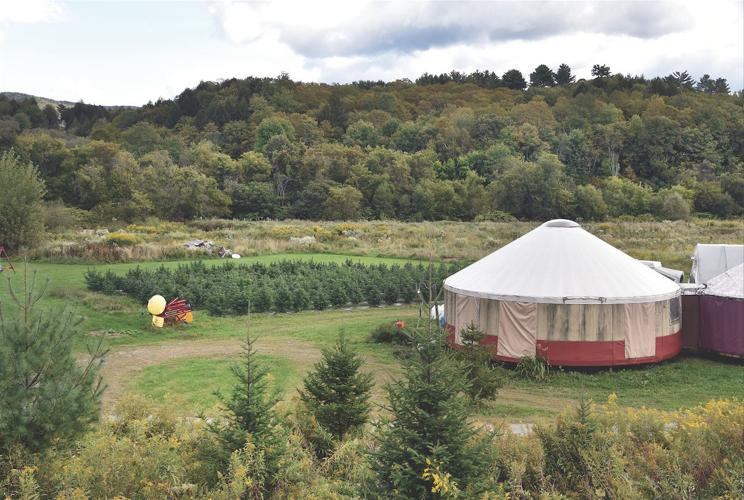The Vermont Supreme Court has ruled that the state’s recreational land law protects the owners of property in Waterbury where a 3-year-old boy drowned.
In a 3-2 decision issued Friday, the court ruled that Stephen and Susan Fishman could not be held liable for the death of Parker Berry.
At issue was Vermont’s recreational use statute, which limits landowner liability when the land is open for recreation use. According to the law, its purpose is “to encourage owners to make their land and water available to the public for no consideration for recreational uses.”
In short, the law encourages landowners not to post their land, allowing the public to use it for hunting, fishing, hiking and other recreational activities.
“It’s unfortunate what happened, but the real question was whether the Vermont Supreme Court was going to chip away at those protections for those landowners who open up their lands for recreational use,” said Susan Flynn, attorney for Stephen and Susan Fishman.
Background
In February 2016, Parker Berry — a 3-year-old boy from Hyde Park — was attending Elephant in the Field, a day care that allowed its children to explore the land on and around the facility on Guptil Road in Waterbury, when he drowned in Thatcher Brook.
Part of that land included some of the 41 acres adjacent to the day care owned by Stephen and Susan Fishman. The Fishmans are the parents of Noah Fishman, who — with his spouse, Marlena Fishman — owned the now-closed day care.
At the time, then-Washington County State’s Attorney Scott Williams declined to file criminal charges against Noah or Marlena Fishman.
In October 2016, Katerina Nolan — Berry’s mother — filed a civil complaint in Lamoille County Superior Court against Stephen and Susan Fishman. Nolan argued that the elder Fishmans were legally responsible for what happened on their land. The Fishmans argued they are protected under Vermont’s recreational use statute.
The case moved through Lamoille County Superior Court until July 2018, when the Fishmans received an interlocutory appeal to the Vermont Supreme Court. An interlocutory appeal essentially pushes the pause button on a lower court case before it can go to trial, to see if the Supreme Court will weigh in on the merits of the case.
In March of this year, the court heard oral arguments from Flynn and from Andrew A. Beerworth, attorney for Nolan.
“The defendants knew Parker was on their land, they knew why he was there, they knowingly exposed him and the other children, or allowed them to be exposed, to the brook,” Beerworth said at the time. “And they knew that the only thing standing in the way, or between those children and certain injury or death, was a day care that extolled the virtues of not closely supervising children during outdoor play.”
Beerworth did not respond to an interview request for this article.
“Despite irresponsible verbiage to the contrary, neither Mr. Fishman nor Mrs. Fishman owned, operated, worked for, or had the slightest legal connection with the day care business,” Flynn argued. “They did not supervise it, or any part of it. They were not even home at the time of the accident.”
Supreme Court decision
At issue was whether Stephen and Susan Fishman’s land was undeveloped. If the land is considered undeveloped, the landowner has protections against liability, protections the landowner does not have if the land is considered “developed for commercial recreational uses.”
Court records state that improvements to the Fishmans’ land included a sandbox, mowed pathways and a bridge over the brook. However, records also state that the elder Fishmans did not profit from the day care.
“Here, it is undisputed that the day care did not develop the land for commercial recreational uses,” wrote Associate Justice Marilyn Skoglund in the majority decision. “The main purpose of the day care’s use of the land was educational and recreational. Although the day care owners may have profited from the use of defendants’ land, as a guide may profit from giving river tours, the statute does not become inapplicable to landowners simply because a third party may have earned some level of profit from its use of the land.”
In a dissent, Chief Justice Paul L. Reiber — who was joined by Associate Justice Beth Robinson — argued the development of the land disqualified the Fishmans from protections under the state’s recreational use statute.
“In my view, the facts compel us to conclude that defendants’ property was ‘developed for commercial recreational uses,’” Reiber wrote.
“In practice, defendants’ land was used for, and developed for, commercial recreational uses, and Parker Berry died while on that property for that commercial recreational use,” Reiber wrote. “Therefore, defendants’ land is excluded from protection pursuant to the recreational-use statute with regard to Parker’s death.”














(0) comments
Welcome to the discussion.
Log In
Keep it clean. Please avoid obscene, vulgar, lewd, racist or sexual language.
PLEASE TURN OFF YOUR CAPS LOCK.
Don't threaten. Threats of harming another person will not be tolerated.
Be truthful. Don't knowingly lie about anyone or anything.
Be nice. No racism, sexism or any sort of -ism that is degrading to another person.
Be proactive. Use the "Report" link on each comment to let us know of abusive posts.
Share with us. We'd love to hear eyewitness accounts, the history behind an article.